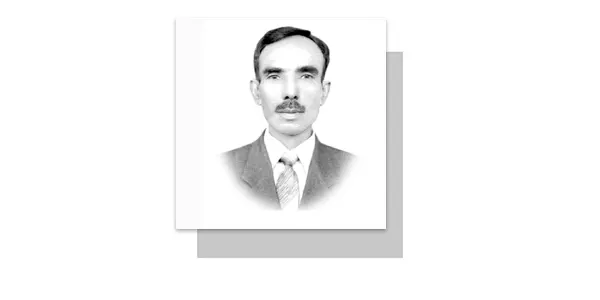EVERY year, Kashmir Solidarity Day is observed on February 5 by people throughout Pakistan and Azad Jammu Kashmir (AJK). It is an internationally recognized day observed by people, predominantly Kashmiris, worldwide. Pakistan observes this very day to express country’s unwavering political, moral and diplomatic support to the just struggle of Kashmiri brethren, as enshrined in the UN Charter and relevant UN resolutions. The day is marked by public processions, seminars, protests and special prayers in mosques by people across Pakistan and (AJK) to condemn Indian military oppressions which are being carried out in the disputed territory of Indian Illegally Occupied Jammu and Kashmir (IIOJK) and to show solidarity with the Kashmiri freedom fighters who continue their war of liberation of the IIOJK. 5th February symbolizes Pakistan’s deep-rooted relationship with Kashmir.
Every year, this day revives the cultural, religious and the geographical proximity the valley enjoys with Pakistan. It is mentionable that in order to maintain its illegal control, India has continued its repressive regime in the IIOJK through various machinations. While, Indian Constitution was torn into pieces when on August 5, 2019, Indian Parliament revoked articles 35A and 370 of the Constitution, which gave a special status to the disputed territory of the Indian Illegally Occupied Jammu and Kashmir (IIOJK). The act split the IIOJK into two territories to be ruled directly from center. Thus, Indian fanatic Prime MinisterModi’s government led by extremist party BJP unilaterally annexed the IIOJK to turn Muslim majority into minority. On the same day, strict military lockdown was imposed in the IIOJK which continues unabated. The deployment of more than 900,000 military troops in the IIOJK, who have martyred tens of thousands of the Kashmiris, including women and children through brutal tactics-fake encounters, while closure of mosques, shortage of foods, medicines for the patients have further increased the plight of the Kashmiris.
While, under a well-planned hidden agenda, Modi-led regime has intensified, bringing ethno- demographic changes in IIOJK. In this context, Indian various moves such as introduction of new laws, amendment of the laws to facilitate non-Kashmiris and outsiders in order to usurp the rights of the Muslim Kashmiris—issuance of domicile certificates to more than 800000 non-Kashmiris, registration of almost 2.5 million new non-local voters in the IIOJK—failure of fake drama to host G-20 summit on May 22-24, 2023 in the IIOJK, from time to time, violations of the Line of Control (LoC) by shelling inside Pakistanis side of Kashmir—in violation of the ceasefire agreement of 2003 might be cited as instance. In order to conceal India’s state terrorism, Kashmir has been cut off from rest of the world. Notably, during the partition of the Sub-continent, the people of the state of Jammu and Kashmir (J&K) which comprised Muslim majority decided to join Pakistan. But, Dogra Raja, Sir Hari Singh, a Hindu who was ruling over the J&K in collusion with the Indian Prime Minister Jawaharlal Nehru and Governor General Lord Mountbatten joined India. The Radcliffe Boundary Award gave the Gurdaspur District—a majority Muslim area to India to provide a land route to the Indian armed forces to move into the J&K. Indian forces invaded Srinagar on October, 27 1947 and forcibly occupied the J&K in utter violation of the partition plan. When Pakistan responded militarily, on December 31, 1947, India made an appeal to the UN Security Council to intervene and a ceasefire ultimately came into effect on January 01, 1949, following UN resolutions calling for a plebiscite in Kashmir.
The Security Council adopted resolution of April 21, 1948, which promised a plebiscite under UN auspices to enable the people to determine whether they wish to join Pakistan or India. On February 5, 1964, India backed out of its commitment of holding plebiscite. Instead, Indian Parliament declared Kashmir-an integral part of the Indian union. Since 1989, Kashmiris have already been enduring various forms of state terrorism; no Indian soldier has ever been taken to task. Hence, since the military clampdown started, Indian forces have intensified the employment of cruel tactics. Almost, 100,000 Kashmiris have died in the past 33 years.In this regard, UN human rights experts on August 4, 2020 called on India and the international community to take urgent action to address the “alarming” human rights situation in Jammu and Kashmir—“to investigate all cases of human rights violations, including extrajudicial killings, enforced disappearances, torture and arbitrary detentions.” And amnesty International said on September 29, 2020 that it is “stopping its work in India because the government has frozen its bank accounts on September 10 [2020] for highlighting rights violations in Jammu and Kashmir…the government had sought to punish it for that”.
In the recent past, the UNSC in its meetings has thrice reiterated that the Kashmir issue requires to be settled in accordance with the principles of the UN charter and the related Security Council resolutions. Moreover, Indian extremist rulers are escalating tensions with Pakistan to divert attention from the drastic situation of the IOK and Indian internal issues. For the purpose, Indian forces have also accelerated shelling inside Pakistani side of Kashmir by violating the ceasefire agreement in relation to the LoC. Nonetheless, the 5th of February is being observed as the Kashmir Solidarity Day to pay homage to Kahsmiri martyrs and to show solidarity with the freedom fighters who continue war of liberation, demanding their legitimate right of self-determination, as recognized by the UN resolutions.
—The writer is contributing columnist, based in Lahore.
Email: [email protected]
views expressed are writer’s own.










